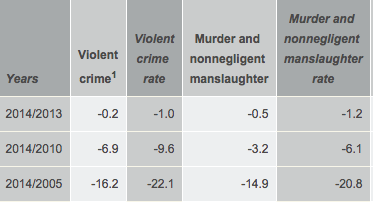Friday Morning: Dark Water Jazz
It’s Friday and that means jazz here at emptywheel. But no genre exploration today, just this lovely, evocative downtempo jazz/trip hop fusion work.
It’s dark water jazz indeed this week…
Congress oublies the Flint water crisis
I can’t find anything in C-SPAN about the House Energy and Commerce Committee hearing which was to address the crisis. Convenient for Republicans running for office right now to keep themselves at arm’s length from a Republican scandal. We’re lucky the hearing was captured at all; it can be found at the committee’s website. (Video 3:44:08)
It must be difficult to kowtow to traditional GOP underwriters while trying to appear like you’re doing a credible job of representing Americans most in need. But it’s a lot easier to bury and forget the inconvenient.
The latest scuttlebutt is that the bipartisan Energy Policy Modernization Act of 2015 (S.2012) will proceed without additional funding to remedy Flint’s damaged water system, still replete with lead piping. Senate Republicans led by Senator Mike Lee of Utah protested the inclusion of funding for Flint in this bill, threatening to reject it altogether.
Wait — you know who’s up for reelection this season? Senator Mike Lee! Amazing coincidence! Or not. You know, Senator Lee, when your fellow senators leak about your obstruction, you should catch a clue. Sometimes actually helping Americans is more important than sucking up to your anti-tax overlords.
You know who else is up for reelection this season? Senator Lisa Murkowski, the chair of the counterpart Senate Energy Committee and the sponsor of S.2012. You’d think she’d want to look effective as a leader and at governance.
Roughly 8,000 children will continue to live as if they are in a third world country, with a patchwork of assistance for their health and education, but no relief from the lead pipes which continue to run from the water department to their homes. Imagine them drinking water out bottles for the rest of their childhoods, their families having to take additional time and effort to lug bottles upon bottles for their daily essential needs.
Don’t even suggest these families leave. They are stuck, STUCK in Flint, because their property values have been gutted by the failure of a GOP-led state administration, and the continued avoidance by a GOP-led Congress. Who wants to buy a home with lead pipes in Flint now? Which banks want to finance new mortgages to those homes? Which insurers want to write coverage on them?
Some government aid has been offered to Flint — which the ever-ineffectual Rep. Fred Upton recited like a litany during the hearing (see 0:13:30 in the video) — but none of it addresses the lead piping.
Donald Trump won the Republican primary in Flint’s home county of Genessee, by the way. Can’t understand why…
Cleaning off the desk
Stuff worth perusing, but I’m not going to elaborate on before I chuck it in the bin for the week.
- Microsoft suing U.S. government for gagging the software company about government requests for users’ information. (Microsoft) — MSFT president Brad Smith wrote in a blog post about the suit; note the complaint here (pdf) in which MSFT shared these details:
Between September 2014 and March 2016, Microsoft received 5,624 federal demands for customer information or data. Of those, nearly half—2,576—were accompanied by secrecy orders, forbidding Microsoft from telling the affected customers that the government was looking at their information. The vast majority of these secrecy orders related to consumer accounts and prevent Microsoft from telling affected individuals about the government’s intrusion into their personal affairs; others prevent Microsoft from telling business customers that the government has searched and seized the emails of individual employees of the customer. Further, 1,752 of these secrecy orders contained no time limit, meaning that Microsoft could forever be barred from telling the affected customer about the government’s intrusion. The government has used this tactic in this District. Since September 2014, Microsoft received 25 secrecy orders issued in this District, none of which contained any time limit. These secrecy orders prohibit Microsoft from speaking about the government’s specific demands to anyone and forbid Microsoft from ever telling its customers whose documents and communications the government has obtained. The secrecy orders thus prevent Microsoft’s customers and the public at large from ever learning the full extent of government access to private, online information
Emphasis Microsoft’s. Therein the one way to release a limited amount of information: file suit against the government.
- Claims after March attack that Brussels airport security was lax impels Belgium’s transport minister to quit (euronews) — Bombs were detonated before security clearance area; not certain how minister could have prevented bombing except to move clearance all the way to the edge of the airport’s perimeter instead of after check-in.
- UC-Davis sanitized the internet to prop its image (SacBee) — School paid $175K to excise references to a 2011 attack on student protesters by police using teargas. Should keep in mind UC-Davis is part of the University of California, of which former Homeland Secretary Janet Napolitano is president, who authorized spying-by-malware on UC-Berkeley.
- Hey, did you know there’s a tiny sovereign country inside U.S. borders? (Atlas Obscura) — Welcome to Molossia, have a nice day! Surprised no uber-wealthy hit on this as a potential money-laundering. tax-avoidance strategy: make your own country inside the U.S.
And with that we’re off, headed for a nice spring weekend ahead. Have a good one!

![[image (mod): LeAnn E. Crowe via Flickr]](https://www.emptywheel.net/wp-content/uploads/2016/03/FlintWaterCrisis_logo-201x300.jpg)
